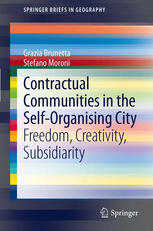

Most ebook files are in PDF format, so you can easily read them using various software such as Foxit Reader or directly on the Google Chrome browser.
Some ebook files are released by publishers in other formats such as .awz, .mobi, .epub, .fb2, etc. You may need to install specific software to read these formats on mobile/PC, such as Calibre.
Please read the tutorial at this link: https://ebookbell.com/faq
We offer FREE conversion to the popular formats you request; however, this may take some time. Therefore, right after payment, please email us, and we will try to provide the service as quickly as possible.
For some exceptional file formats or broken links (if any), please refrain from opening any disputes. Instead, email us first, and we will try to assist within a maximum of 6 hours.
EbookBell Team

4.4
82 reviewsBoth “land-use regulation” and “territorial collective services” have traditionally been accomplished in cities through coercive efforts of public administrations. Recently, land-use regulation and collective service provision regimes have emerged within “contractual communities:” territory-based organisations (usually, but not exclusively residential) such as homeowners’ associations.
This book examines the problems and opportunities of contractual communities, avoiding both the alarmism and unwarranted apologies found in much of the literature on contractual communities.
The central notion is that cases in which coercive action by a public agency was deemed indispensable have been unjustly overstated, while the potential benefits of voluntary self-organising processes have been seriously understated. The authors propose a revised notion of the state role that allows ample leeway for contractual communities of all forms.